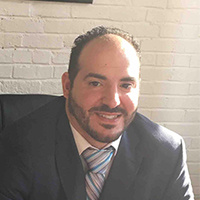 Lehighton Criminal Lawyers, Pennsylvania
Lehighton Criminal Lawyers, Pennsylvania
Sponsored Law Firm
-
 x
x

Click For More Info:
-
Ciccarelli Law Offices
Numerous Office Locations Available» view mapCriminal Defense Success Is Our Mission
You gain the resources of a Team with 100 years of combined experience fighting for their clients throughout Pennsylvania.
888-240-0896
Sponsored Lawyers
1-10 of 18 matches
Criminal
As a former Luzerne County Assistant District Attorney, Albert prosecuted many criminal cases before setting his sights on criminal defense and immigration assistance. Albert's years of experience make him an outstanding choice to represent you with all of your legal needs.
(more)Bankruptcy & Debt, Real Estate, Immigration, Criminal, Business
If you are experiencing financial difficulties, you do not have to work through them alone. The Laputka Law Office focuses on your debt/credit related issues. Our clients come from all walks of life. We understand that every client is different and that every client’s problems require individual attention and a personalized solution. Our guarantee to YOU, our client, is that we will offer you the best personalized solution to your problems at prices anyone can afford.
(more)Criminal, Divorce & Family Law, Accident & Injury, Real Estate
Frank is a practicing lawyer in the state of Pennsylvania.
(more)


 Lee Ciccarelli West Chester, PA
Lee Ciccarelli West Chester, PA AboutCiccarelli Law Offices
AboutCiccarelli Law Offices Practice AreasSpecializations
Practice AreasSpecializations



